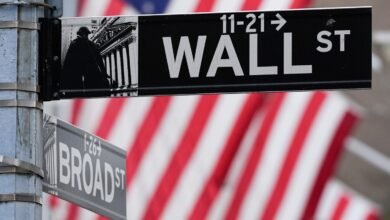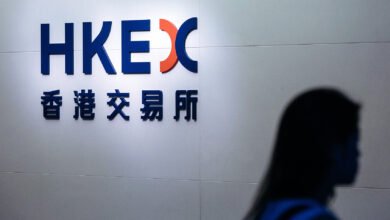South Korea’s Shipbuilders And Tech Stocks Sink On Trade Tensions

What’s going on here?
South Korea’s KOSPI index slipped on Tuesday as fresh US–China trade tensions hit major exporters—especially shipbuilders—even as battery and auto makers powered ahead.
What does this mean?
China unleashed fresh sanctions on US-linked operations at Hanwha Ocean, dragging down shares of both Hanwha Ocean and Hanwha Engine—while Samsung Heavy Industries and HD Hyundai Heavy Industries each dropped more than 4%. The moves put a spotlight on just how intertwined South Korean exporters are with global supply chains, and how renewed economic friction can quickly sap investor confidence and profits. Chip majors Samsung Electronics and SK Hynix also lost ground, with some investors cashing out despite strong outlooks. Still, market action wasn’t all negative: POSCO Future M jumped after clinching a big graphite deal, and LG Energy Solution gained on robust EV battery demand. Hyundai Motor and Kia outperformed on upbeat electric car sentiment, as did steelmaker POSCO Holdings and biotech star Samsung BioLogics. Perhaps most telling, foreign investors snapped up $340 million in Korean stocks—even as local traders played it safe.
Why should I care?
For markets: Trade tensions put exporters in the spotlight.
US–China friction is once again giving South Korean exporters a tough time. With over 60% of listed firms posting losses and the won slipping against the dollar, domestic investors sought safer ground, while overseas buyers moved in on Korean stocks. Sectors tied closely to global demand—like shipbuilding and semiconductors—could see more volatility if these tensions keep flaring, but EV and battery names continue to ride long-term growth trends.
The bigger picture: Supply chains face another test.
Trade disputes don’t just mean new tariffs—they force entire industries to rethink how and where they operate. South Korea’s outsized role in the US, Chinese, and global value chains means every new round of trade drama has the power to reshape strategies and revenue streams. As multinational players and governments recalibrate their moves, the resilience and risks of globally connected exporters will keep making headlines.
SPONSORED BY TRADU
Your dream partner would understand you, support you, and never leave you with a lofty bill.
We’re not talking about dating here. (But boy, wouldn’t that be nice.) Your broker – your trading partner – should have those qualities, see.
You want:
- A range of products to personalize your portfolio: Tradu has over 13,000 assets ranging from indexes to foreign exchange markets, helping you diversify across regions, sectors, and products.
- Transparent and fair pricing: You’ll see clear, upfront prices at all times, with fees from just £0.01 per stock trade. Plus, you can trade tax-free.
- Bot-free support and investing development: You can access pro-level research and tools, like Jefferies insights and data-driven signals. And, you’ll always have access to 24/7 human support.
The site’s easy on the eyes, too: you’re looking good, Tradu.
65% of retail CFD accounts lose money. Your capital is at risk.






